Surfing is an extreme sport, and while it can be exciting to be out under the sun and getting into the waves, surfing should be taken seriously.
Any sport can be dangerous, depending on how much risk you’re willing to take.
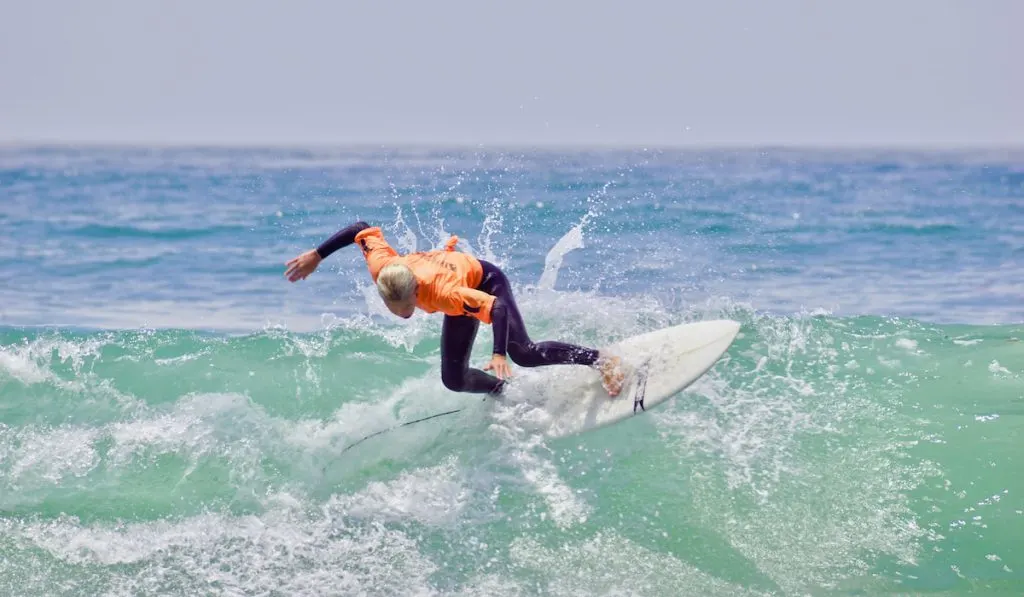
If you get into the water and surf with zero experience and knowledge, then expect to get yourself into dangerous situations.
However, if you come prepared and well-trained, surfing can be fun, exciting, and safe.
To help you out, this article talk about the most common dangers of surfing.
This list will help you identify an upcoming dangerous situation, and help you stay safe while you surf in the water.
1. Marine Creatures
There are more than just fish in the water world. There are many marine creatures that can be potentially dangerous to our lives.
Some things to look out for are sea snakes, stingrays, jellyfish, sea urchins, stonefish, and weever fish which are all venomous marine creatures, and can be life threatening.
Some creatures have great camouflage ability so you may not notice them hiding just below the shallow sand.
When you walk barefoot near the shore, you unknowingly put yourself in the dangers of lethal stings and bites from these marine animals.

2. Sharks
Aside from the marine creatures mentioned above, we also have to consider the threat sharks can possess. With their big, sharp teeth, and sudden attacks, they can wreak a lot of damage very quickly.
When humans invade their territory, they put themselves in the risk of getting bitten by these monsters.
And while the chances of getting attacked by one is really low, the dangers of surfing in a shark-infested area can be pretty scary.
3. Drowning
Just because you know how to swim doesn’t mean you can’t drown. Drowning can happen to anyone, even the best swimmer and surfer out there.
Having cramps in the middle of surfing, getting trapped on a reef, not being able to swim back on your board, and hitting your head and going unconscious from a collision can all be reasons for drowning.
That’s why it is important to have a buddy, or a friend with you while you surf.
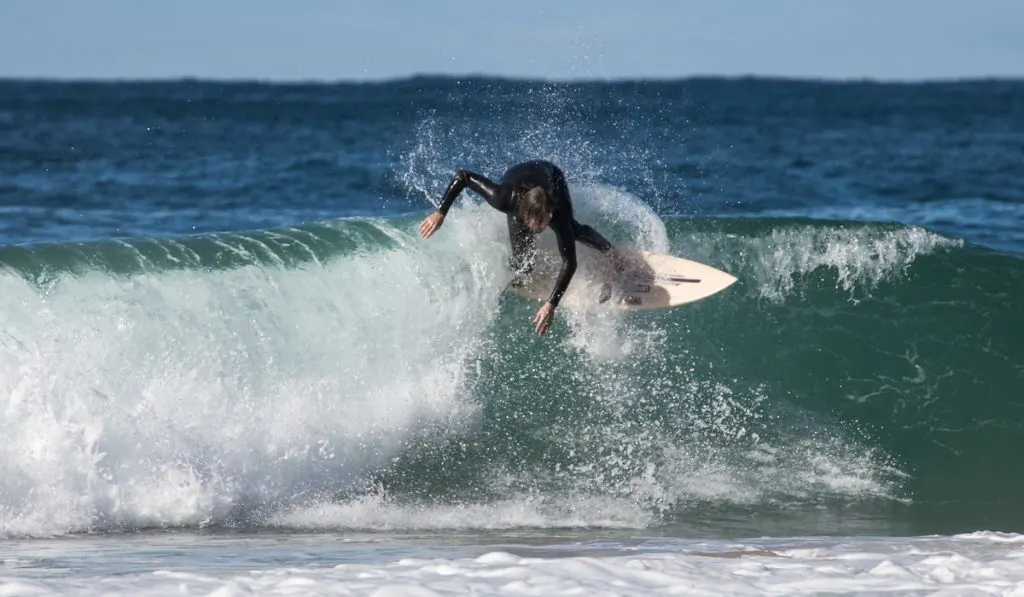
4. Surfboards
A surfboard can put you in danger if you don’t know how to properly handle it.
With sharp switchblades and a pointed end, a surfboard can be a threatening piece of sports equipment.
So before getting on your surfboard, make sure that you are properly trained to control your board while surfing.
5. Waves
Just imagining riding the nice waves at the beach can be really exciting.
However, not all waves are safe to ride on. In fact, some are powerful enough to rip your bones.
Getting wiped out by a strong wave is a common cause of surfing injury.
6. Water Pollution
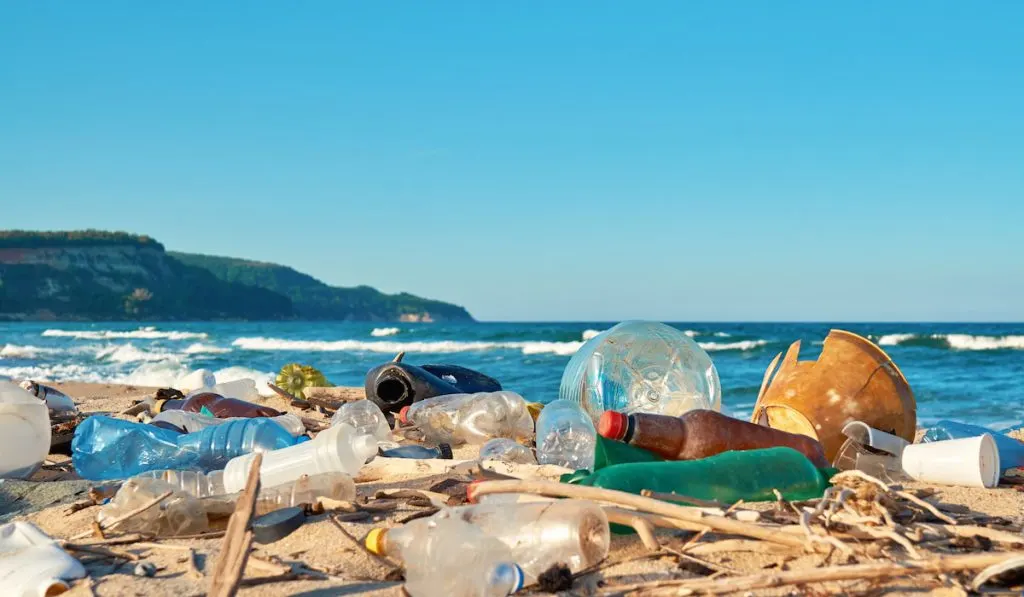
If you’re surfing in a place you are not familiar with, make sure to check the quality of the water before getting in to avoid ingesting polluted water.
Runoff, sewage, oil leaks, poisonous chemicals, fertilizers and pesticides, urban wastes, and plastics are some of the most common causes of contaminated freshwater and saltwater.
Water pollution is a huge threat to our environment, and it is also one of the most serious ocean issues we are facing today.
As a matter of fact, in some areas, surfers are instructed not to surf after it rains!
7. Local surfers
There are cases when the local surfers can be quite unfriendly and intimidating, and sometimes, aggressive.
We can’t do anything about these regular surfers, but we can do something to reduce the chances of bumping into one.
Behave yourself when surfing, know about the surf etiquettes in that area, and don’t make a fuss.
You only put yourself in trouble if you don’t know the local customs and courtesies.

8. Leash Tangles
Everything is good until you wipe out and have the maddening leash intertwine itself on your legs and arms at the most inopportune time.
It can be terribly infuriating, but the only thing you should keep in mind is to have a leash with a swivel, and make sure that the leash is positioned correctly.
9. Hypothermia
Hypothermia occurs when you surf in a near-frozen area.
That said, you must wear a thick wetsuit if you are one of the surfers who are strong enough to take on the challenge of cold-water surfing.
It is important to know that when our body temperature drops below 95°F, we find ourselves in a deadly situation.
10. Weather
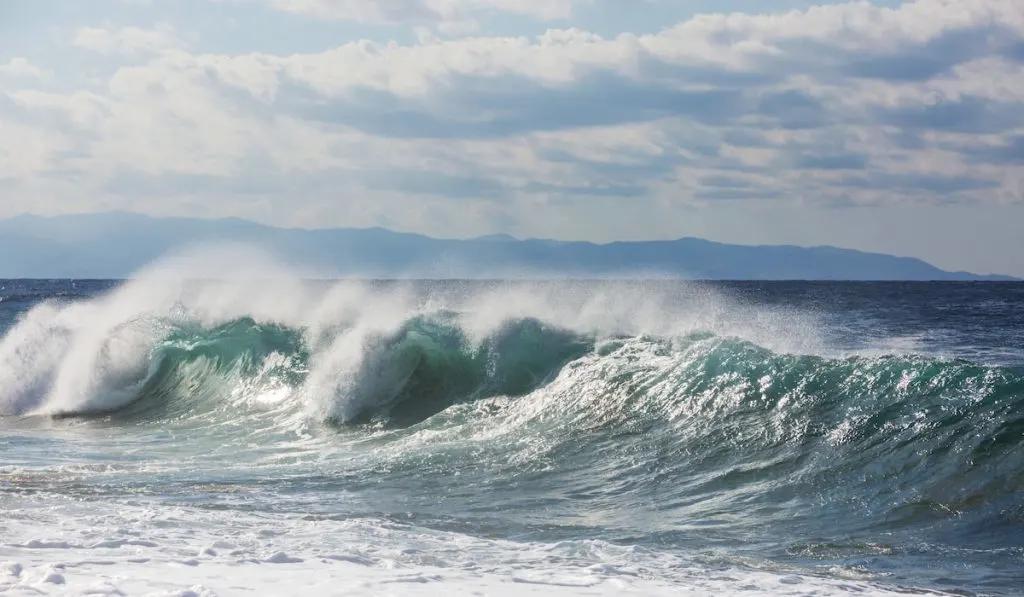
There are instances that when you surf, the weather can turn harsh which causes dangerous huge waves and lightning storms.
Big waves can cause you to wipe out and be in danger, and lightning storms are of course, very dangerous.
When you notice that the weather starts to go bad, get out of the water as soon as you can.
It is also a good routine to always check the local weather forecast before surfing, although the weather can sometimes still be unpredictable.
11. Newbies
Having a surfboard itself can be pretty dangerous. Even more so if there is a group of newbies practicing in the area.
Flying surfboards, crowded areas, novice surfers using bodyboarders as speed bumps – you name it!
These newbies may accidentally hit you so it is important to be aware of your surroundings all the time, or better yet, stay away from them.
12. Sun
Just like swimmers, surfers spend most of their time under the sun.
Long exposure to the sun’s ultraviolet (UV) rays can be dangerous.
While most people like having tan skin, it is dangerous and can lead to damaged skin, such as sun burns, skin aging, and skin cancer.
Before getting into the water, make sure you are protected with sunscreens that have high protection and are coral reef-safe.
13. Sea bed
It can be painful when you wipe out and fall off your board. If you fall on a sandy bottom, it may feel like you fell on concrete.
If it is a rock reef, then it is a more painful version of sandy bottom due to the rocky texture of the concrete.
Even worse is if you fall in corals. They cut like a knife, piercing into your feet, limbs, or even face. It doesn’t end there, because these cuts can leave awful wounds, bruises, and rashes.
Always wear a wetsuit to protect yourself. Also, if you are a beginner, it is advisable to avoid rocky areas, as well as those with coral reefs.
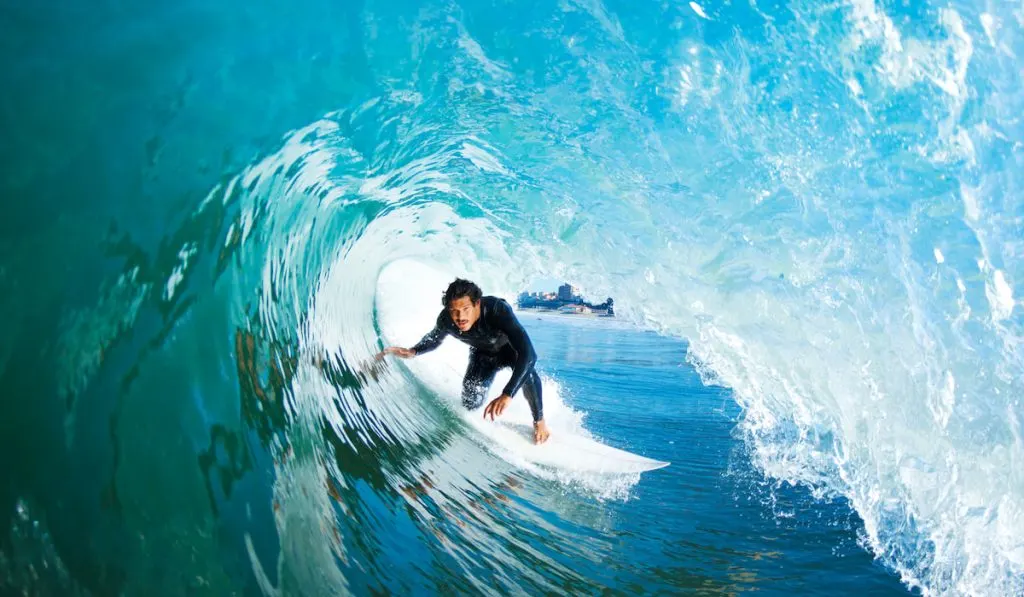
14. Rip Tides, Rip Currents, and Undertows
Not many people know it, but dozens of people die every year because of rip tides, rip currents, and undertows. These occurrences are silent killers!
They are dangerous not because they pull down swimmers and surfers deep into the water, but because they can drain a person’s energy until they become exhausted and unfortunately, drown.
To get away from this situation, first, let the current take you further into the water. After you stop being caught by the rip, quickly swim to the side and head towards the breaking waves. And from there, you’ll be safe.
Remember to always stay calm, never panic, ask for help from other surfers and people nearby, and most importantly, control your energy.
15. Lack of skills
Perhaps the most dangerous among our list is the lack of knowledge and skills.
Getting into the water without any experience only means that you are putting yourself at a big risk.
While falling off the board and getting wiped out is part of being a surfer, it is important that you know what to do and be extremely aware of your surroundings when dangerous situations occur.
If you’re not confident about your surfing skills, there are surfing schools you can enroll in to improve your skills, as well as get trained by professionals.
Final Thoughts
All sports have their own dangers that anyone may encounter.
Just keep in mind to always be careful, be properly knowledgeable about what you’re getting into, and always have a friend, or a companion with you.
Overall, surfing is an excellent sport to improve your body, mind, and soul.
And that’s pretty much it. I hope that this article helped you. As always, feel free to share this with your family and friends!
Resources:
- https://surfing-waves.com/surfing-dangers.htm
- https://www.surfertoday.com/surfing/the-most-common-surfing-dangers-and-hazards
- https://www.sandiegosurfingschool.com/blogs/surfing/surfing-dangers-staying-safe-in-open-water
- https://hvsboardblog.com/is-surfing-dangerous/
- http://www.surfedukators.com/dangers-surfing/
- https://newquayactivitycentre.co.uk/10-dangers-surfing/
